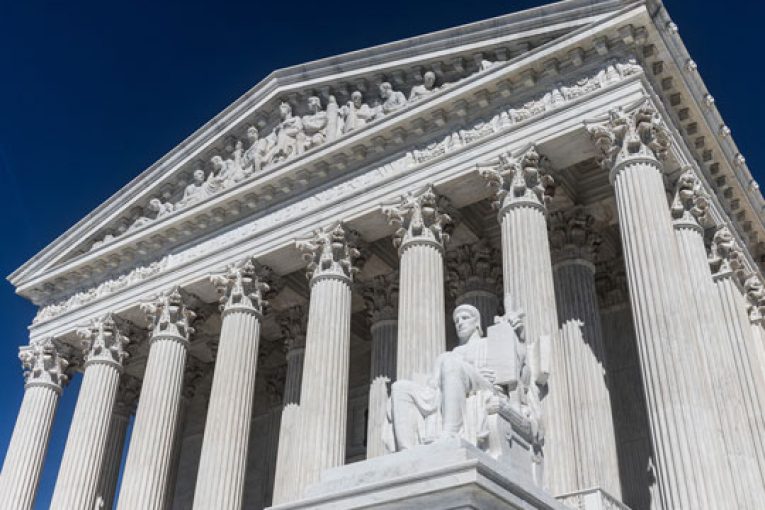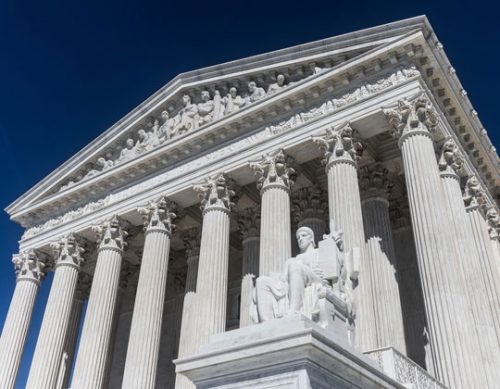

By Vy Tran
WASHINGTON, DC — The U.S. Supreme Court earlier this month ruled via a 6-3 vote that former Presidents, like Donald Trump, can claim “absolute immunity from criminal prosecution” for “official acts” that are part of a President’s “core constitutional powers,” reported by Candice Norwood from The 19th.
The issue of the case centered around whether or not Trump can be held responsible in the “federal election interference” case against him, according to The 19th.
“The President enjoys no immunity for his unofficial acts, and not everything the President does is official. The President is not above the law,” Chief Justice John Roberts wrote in the majority opinion. “But Congress may not criminalize the President’s conduct in carrying out the responsibilities of the Executive Branch under the Constitution.”
However, this assurance only raises concerns amongst many voters, including activists who speak out against their newest reality of the incarceration system.
“In one of the world’s most carceral countries, where Black men and people of color are disproportionately punished, a powerful position held almost exclusively by White men is immune from criminal prosecution,” Norwood wrote.
“If Black men in the U.S. were their own country, they would have an incarceration rate twice as high as any U.S. state or almost any independent country,” said Wanda Bertram, communications strategist with the Prison Policy Initiative, a nonpartisan research and policy organization. (The Prison Policy Initiative has not made a statement about the specifics of the Supreme Court’s decision of Trump’s immunity.)
The all-women liberal bloc of the Supreme Court also strongly disagreed with the majority ruling.
While the dissenting opinions did not specifically “mention race, gender or the inequitable reality of mass incarceration,” according to The 19th, “the heart of their objections is fear of a country with a criminal justice system that does not apply to its most powerful office, the presidency — a position where 44 of 45 people in this role have been White men.”
“If the structural consequences of today’s paradigm shift mark a step in the wrong direction, then the practical consequences are a five-alarm fire that threatens to consume democratic self-governance and the normal operations of our Government,” Justice Ketanji Brown Jackson wrote in a solo dissent.
Another dissent authored by Sonia Sotomayor and joined by Jackson and Justice Elena Kagan warned the majority “has replaced a presumption of equality before the law with a presumption that the President is above the law for all of his official acts.”
“If the occupant of that office misuses official power for personal gain, the criminal law that the rest of us must abide will not provide a backstop,” she continued.
According to the decision, the justices did not rule on whether Trump’s behavior leading up to and following the 2020 presidential election falls under his official executive authority. Instead, according to The 19th, they sent the issue back to lower courts.
Norwood, on top of reporting the facts of the case, offers social insight into the court’s decision on Trump and its impact on a “broader conversation about the ways people with power and resources are treated more favorably by the criminal legal system.”
The United States has nearly two million people detained across its state or federal prisons and local jails, according to The 19th. The report also stated that about 35 percent of those incarcerated people are Black men, though they make up about 13 percent of the total U.S. population.
In one 2021 report, researchers at Columbia University found 26.8 percent of Black men, 16.2 percent of Latino men and three percent of White men in New York City have been jailed by age 38. And young Black men are about 50 percent more likely to be detained without a conviction than White defendants, according to a 2019 report by the Prison Policy Initiative.
In a similar vein, homeless populations are also undergoing criminalization under a system that favors the powerful, as noted by Bree Spencer, senior program director for justice reform at the Leadership Conference on Civil and Human Rights, arguing, people are criminalized for circumstances that “should be handled by social safety net programs or public health services.”
Notably, on Jun. 28, 2024, the Supreme Court ruled that homeless people can be prohibited from using “blankets, pillows, or cardboard boxes for protection while sleeping outdoors,” meaning they could receive jail time if they do, wrote Norwood, drawing a contrast between this ruling and the ruling made on July 1, 2024.
Crime policies targeting low-income people intersect with Black, brown and Indigenous communities, which tend to have fewer resources to help during the legal process and are confronted by more government surveillance in the form of policing or child protective services, maintains Spencer.
“We see racism in the crimes we choose to hold people accountable for, and in how we saturate certain areas and neighborhoods with resources that help people thrive, versus how we saturate certain areas with police,” Spencer said.
While Norwood reported that recent policies around the country aimed at “eliminating cash bail, expunging criminal records or releasing incarcerated people early address some of the drivers of incarceration,” hopeful advocates are still doubtful about the political discussions on reform, calling them “inconsistent and short term.”
Even if other state programs seek to “decrease the amount of contact that law enforcement officials have with the public” to decrease the “pattern of violent response by police officers that routinely violated people’s constitutional rights,” Trump’s motto of “law and order” for his 2024 presidential campaign can critically impact and even reverse these efforts, note advocates.
“In its ruling this week, the Supreme Court offered Trump immunity protections that may shield him against his own criminal charges,” Norwood commented. “If elected in 2024, however, Trump appears poised to take a strict stance in his criminal justice policy, which would have a disproportionate impact on Black men who already bear the brunt of mass incarceration.”
Trump’s campaign website promises he will “deliver record funding to hire and retrain police officers, strengthen qualified immunity and other protections for police officers, increase penalties for assaults on law enforcement, put violent offenders and career criminals behind bars, and surge federal prosecutors and the National Guard into high-crime communities.”
“The work that’s been done to create reforms has had an impact, and so we should feel good about that. But it’s very much in jeopardy, especially given the response to the uptick in crime that happened during the pandemic,” said Nazgol Ghandnoosh, the author of the report and the co-director of research at The Sentencing Project.
“I think the reality is…there are ways to consider an affirmative safety agenda that’s better for everyone,” concluded Spencer.